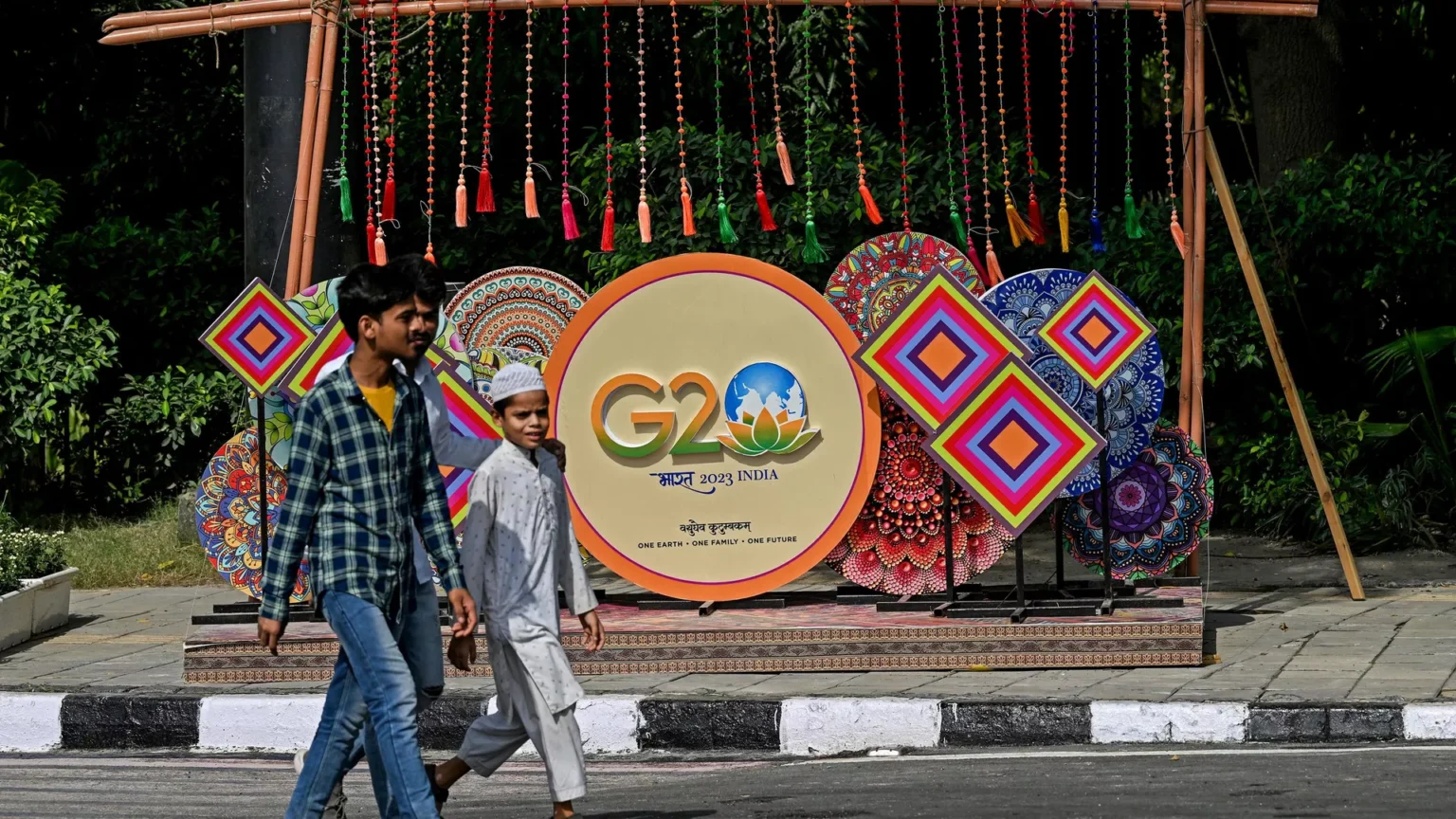Russia expects the West to try to “Ukrainianize” the agenda of upcoming G20 Summit in New Delhi next week, and has warned that it will block any declaration from the gathering that fails to reflect its position on Ukraine and other global crises. Veteran Indian academic Anuradha Chenoy has told Sputnik why Moscow should have nothing to worry about.
The US Treasury announced on Thursday that Secretary Janet Yellen will travel to India next week for the G20 leaders’ summit, joining President Biden, who will also be in the country on a state visit.
“While in New Delhi, Secretary Yellen will continue to rally America’s partners to maintain our collective economic support for Ukraine, including through contributions from across our coalition. She will also highlight the importance of imposing severe costs on Russia and mitigating global spillovers,” the Treasury said in a press statement.
Yellen is also expected to address the energy price cap on Russian oil, which, in the Treasury’s words, “has been achieving its dual goals of reducing Russian revenue while keeping global energy prices stable, as well as efforts to strengthen global food security through the [multilateral development banks].”
Officials in developing countries and business leaders and ordinary residents of nations allied to Washington may contest the Treasury’s latter claims, given that the US-led effort to decouple the West from Russian energy has resulted in a series of price shocks sparking recessions across most of Europe. As for “global food security,” Russian officials have repeatedly blasted the US over the past year-and-a-half over its efforts to hinder Russian grain and fertilizer exports to countries in the developing world.
The New Delhi summit will be the second time representatives from the world’s 20 largest economies meet amid the eighteen-month-old NATO proxy war against Russia in Ukraine. Russian Foreign Minister Sergei Lavrov warned Friday that Moscow “will not agree to adopt a G20 summit declaration if it does not reflect Russia’s position on global crises,” including Ukraine.
If Western powers want to “rewrite the G20’s mandate” to turn it into a UN-style forum focused on international security, Russia will remind them of other conflicts in the world today “rooted in the wars unleashed by the West. If they want, let’s discuss everything,” Lavrov stressed.
Non-Western Countries Won’t Support US Position
Russia can rest assured that “the countries outside the collective West’s alliance will not support” a resolution to support Ukraine at the G20, Dr. Anuradha Chenoy, a retired professor and dean of the School of International Studies at New Delhi’s prestigious Jawaharlal Nehru University, told Sputnik.
“India as host will be put in an awkward position, and will only accept a very watered down resolution, like the Bali Declaration of the 14th G-20. India might agree to give more humanitarian assistance to Ukraine, but nothing more than that,” Chenoy explained. “The US will tempt India to its side (especially against China) with promises of some technology transfers and defense deals. But the performance of US defense equipment given to Ukraine and their vulnerability and destruction by the Russians have exposed US military capability for all to see. Moreover, Russia is known for its transfer of technology to India.”
The US will continue to lobby and pressure major rising powers like India, as well as Brazil and South Africa, to take Washington’s side, but these countries are likely to continue seeking to balance their relations between the US and Russia, and maintain neutrality on the proxy conflict between the two, the observer said.
“The situation and positions of countries vis-à-vis the proxy war that NATO is waging through Ukraine against Russia remains the same,” but “it is unlikely that countries that want to maintain strategic autonomy and neutrality in this Russia-US confrontation will change their position,” Chenoy stressed.
India has successfully leveraged its position as a Middle Power during the Ukrainian crisis, and will continue to do so, the academic believes. “India has gained from the discounted oil prices from Russia. Its trade relations have grown during this period. Prime Minister Modi and President Putin have a good understanding. India would not like to change this equation.”
As for Secretary Yellen’s visit to New Delhi, Chenoy recalled that it comes after the failure of her recent trip to China, “where very little progress was made to improve trade relations…since the US is determined to isolate China through trade by using policies like ‘friend shoring’, curbing chip technology to China and encouraging US firms to leave China.”
India, in this equation, is just another “emerging economy (along with Brazil and South Africa) that Yellen has in mind to make a target for US goods and economic aims,” the academic summed up.
Source: Sputnik



